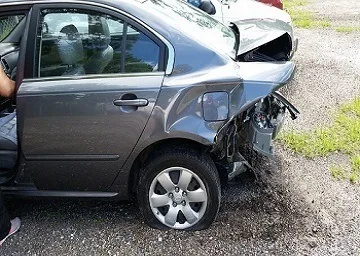While traumatic brain injuries have received a significant amount of attention from the medical community, other neurological disorders can be just as devastating. One of the most common neurological conditions is called Parkinson’s Disease. With this disorder, nerve cells in the brain become damaged and start to die. Over time, the levels of Dopamine in the brain begin to drop. Due to the drop in levels of this hormone, symptoms start to appear. Some of the most common symptoms include:
- Experiencing tremors in the hands.
- Stiffness in the larger muscles often called “cogwheel rigidity.”
- Difficulty walking, leading to a “shuffling gait.”
- Trouble balancing.
These symptoms can be troubling. This disorder impacts many people every year. Some of the statistics regarding Parkinson’s Disease include:
- Parkinson’s disease affects 1% of the population over the age of 60.
- There are over 60,000 new cases of Parkinson’s Disease every year.
- Over 5 million people worldwide are affected by this condition.
- Medication can manage symptoms only. There is no cure.
- More than 23,000 people die from this disease every year.
While medications are used to control the symptoms, they might still worsen. Eventually, there comes a point when people have trouble performing their day to day activities. One crucial skill that many people take for granted is driving.
A Literature Review: Driving with Parkinson’s Disease
People with Parkinson’s Disease are prone to developing any number of various motor symptoms. Slowed reflexes, stiff muscles, and tremors of the hands can make it difficult for them to drive. Clinical research has also demonstrated that Parkinson’s Disease can lead to cognitive impairment as well. This can resemble dementia, along with emotional issues (such as disinhibition and apathy) as well as visual problems. While medications have been shown to be effective in treating the motor symptoms, these cognitive issues often do not respond to treatment. Furthermore, even missing one dose of medication can make the motor symptoms worse. Clearly, these issues make driving a challenge. Prior surveys have found that over 80 percent of people with Parkinson’s Disease still have a driver’s license. About 15 percent had been involved in an auto accident in the past five years.
Results of a Research Study
A detailed research study was performed to assess the driving ability of people with Parkinson’s Disease. Researchers looked at functioning in several categories, including visual ability, cognitive processing, and a road test. The results of the studies demonstrated that people with Parkinson’s disease had varying levels of cognitive and visual impairment, along with sporadic performance on the road test. While some people showed satisfactory performance in various areas, others performed poorly in all areas. These results illustrate that while some cases of Parkinson’s Disease are mild, others can be severe. It falls on the doctor to assess whether or not someone with Parkinson’s Disease should still be driving. Operating a vehicle with severe symptoms of Parkinson’s Disease places not only the individual but everyone else at risk.
Help from a Legal Advisor
When someone suffers from traumatic injuries in a car accident, it is essential to seek medical help first. Once this is done, it can be helpful to meet with a lawyer. An experienced attorney can guide a family through the challenges of an investigation, however, picking the right attorney can be tough. It is crucial for you to select a lawyer who best represents your interests.
Related Articles
Car Accident Attorneys in Sacramento
I’m Ed Smith, a Car Accident Attorney in Sacramento. If you or a loved one has been involved in a car accident with someone who has a neurological condition, call me at (916) 921-6400 or (800) 404-5400. I would be happy to share friendly, free advice.
I am a lawyer in the Million Dollar Advocates Forum.
My guests review our verdicts or settlements at this site.
Everyone is welcome to look at Google, Avvo and Yelp to read our client reviews.
Image Sourcing: The picture at the top of this article is found in its original form on Unsplash. Reproduction has occurred in this article with permission.
:dr cha [cs 708] cv

